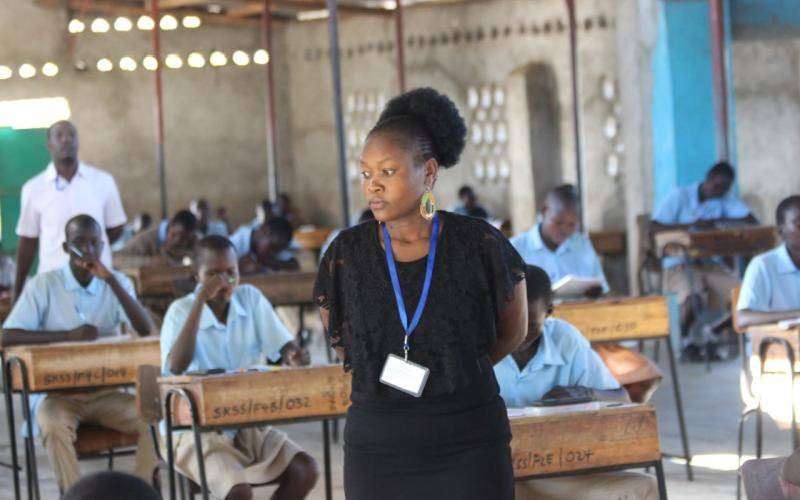An Invigilator at St Kevin’s Secondary School centre in Lodwar, Turkana county during the start of KCSE exams. More 8910 candidates including refugees from Kakuma are writing their KCSE exams.[FILE/Standard]
The Kenya National Examination Council (Knec) will examine KCSE candidates on an excerpt from the set book play The Samaritan at the end of the year. Knec assumes that by then, candidates will have read, understood and analysed the text.
As is custom, the first question on the excerpt will focus on events just before or after it. Answering this well requires knowing the play’s flow, not just the few lines provided. Sometimes, the first question tests the ability to contextualise the excerpt itself, with marks split between what comes before and after. Writing more points than the allocated marks can be an advantage.
Questions on themes are also common. Candidates should know that these may be framed as “emerging issues,” “overarching themes” or “prevailing concerns.” In The Samaritan, recurring themes include corruption, bad governance, technology, role of the media, unemployment, impunity, blackmail, environmental degradation and climate change.
Figurs of speech
Follow The Standard
channel
on WhatsApp
Another frequent area is stylistic devices. Beyond basic figures of speech like similes, metaphors, irony, symbolism and rhetorical questions, candidates may also encounter paradox or juxtaposition.
Character analysis is key. Candidates should identify traits using adjectives—without negation—and back them with illustrations. For instance, Mossi is accused of municipal capture, Nicole embodies moral integrity, while Jayden, Harvester, Ramdaye, Seymour and Ted collude to hide corruption.
Comprehension questions may test knowledge of events elsewhere in the play. Others may ask about tone, mood and attitude—three areas where many students struggle. Teachers are urged to guide candidates carefully here, as all three are described using adjectives.
Grammar and sentence transformation questions may appear, requiring changes such as active to passive, affirmative to negative, or assertive to interrogative. Finally, candidates will be tested on the meanings of selected words or expressions from the excerpt. Synonyms or phrases are acceptable, provided they fit the context and maintain tense.
With thorough preparation, students can approach the Samaritan exam with confidence.
Moraa Nyakeyo, teacher of English and Literature, Nyabururu Girls High School, Kisii
Follow The Standard
channel
on WhatsApp
By Moraa Nyakeyo
